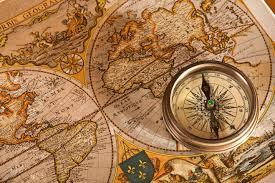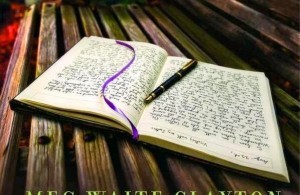Libby Fischer Hellmann's Blog, page 23
August 11, 2015
Movies ‘R Us
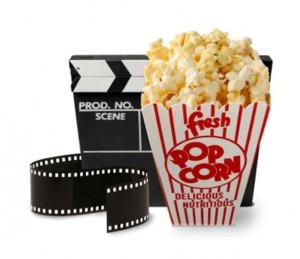 So I just got back from LA where I attended a film pitch conference. For those who don’t know, it’s kind of like speed-dating — you, the author or screenwriter – get five minutes with a production company rep to pitch your property, then you move on to the next.
So I just got back from LA where I attended a film pitch conference. For those who don’t know, it’s kind of like speed-dating — you, the author or screenwriter – get five minutes with a production company rep to pitch your property, then you move on to the next.
Most of the people who attended were screenwriters. There weren’t a lot of authors, which was good for me. Even though I have a film background, I have no interest in writing a screenplay. I wrote the book. Isn’t that enough? And I do know that even if I had written a screenplay that sold, other writers would be “revising” or “editing” it anyway, and the likelihood of it being anything like my book would become more remote with each revision.
Because I have so many books and stories published, I prepared a packet of information before I went out. I selected three books to pitch, but I had loglines (the two sentence elevator pitch) prepared for most of my other work –- just in case.
So… how did it go? Well, it was um—interesting. I do have to say everyone, for the most part, was very nice. Except for the guy who told me how many characters there needed to be in one of my novels. Right, Mr. X. How many stories did you say you’d published?
But he was an aberration. Most of the production people who knew what they were doing lit up when I told them I didn’t want to write the screenplay. That I was simply interested in an option, and they could do whatever they wanted with it. Some reps , probably not all that senior, didn’t seem to understand what I was saying. But I’d expected that. I mean, whom do you send to a Saturday pitch session in the middle of August anyway?
About twenty company reps were present, but the way the sessions worked, I only made it to eleven. Which was fine. Now for the humble part: I am used to speaking in public, and I used to teach executives how to do it. But pitching in 5 minutes? I wasn’t very good. In fact, during one pitch, I got so nervous my throat closed up, and my daughter, who thankfully was with me, had to pinch-hit. I have no idea why that happened, except that the format of the pitch was unfamiliar. I did get better, though, and by the end of the session, I could have done a few more.
The sponsors provided sugary things (no doubt to keep our energy flowing) and also had lots of mints and tic-tacs, which was also appreciated.
I would say that out of the 11 pitches I made, 6 seemed to be very receptive, and 5 were “meh.” Then again, this WAS Hollywood and it’s really hard to tell what is real and what isn’t. Suffice it to say this was a fun experience, once I got over my nerves, and I’d do it again just for the practice. And who knows? Maybe it will lead to something great.
We shall see.
Here’s a question: For those of you who do have experience in these areas, whether as a writer or a company rep, what are the chances something real could actually happen?
The post Movies ‘R Us appeared first on .
August 5, 2015
Why Historicals?
Linda Lear was my history teacher when I was a senior in high school. I was in Advanced Placement US history at a small girl’s school in Washington DC, with maybe 15 girls in the class. I had already taken European history as a junior, and I enjoyed it a lot. But Linda Lear changed my life.
More than the bones of history
She not only taught us history, but historiography, the study of history by scholars with different, sometimes competing views of what really happened during seminal events. For example, I learned that there was an economic view of history; that events happened because of the state of the economy and how the various classes of society were doing at different points in time.
I also learned there was a psychological view of history, which depended on individuals with unique talents and/or personalities. And a political view of history that assumed events were the result of competing ideologies.
I quickly realized history was SO much more than facts and dates, and I fell in love with the subject. In fact I majored in it at college.
But Linda Lear taught me one other critical thing. Thanks to her I learned how to organize a paper and how to write. T-E-C was our high-school mantra: Thesis, Evidence, Conclusion. I used it then. I use it now. Had I not been given that formula, I doubt I would be a writer today.
After college I studied film in graduate school, and, perhaps not surprisingly, began my career in broadcast news, which, of course, is history in the making. After eight years I turned to other pursuits, but when I started to write, everything I’d learned at high school, college, and work came together and I hit the ground running. It makes sense, since an essay is a story, a news item is a story, and a novel is a story.
Always drawn to history
I am still drawn to history, if only because we humans tend to make the same mistakes over and over. We claim we have learned from history, but it doesn’t show. Periods of intense conflict are followed by cycles of revolution, a pushback cycle of repression, which, hopefully, subsides after a generation or two.
Countries and societies experiment with democracy, find they can’t make it work, and ultimately end up back in periods of intense conflict, after which the cycle begins all over again. In Vietnam the French taught us we couldn’t win. We didn’t listen. Afghanistan? The Russians showed us the way. We didn’t listen. Oil in the Middle East? An ongoing litany of mistakes and aggression, all the more shameful because we could have used the dollars to concentrate on alternative sources of energy.
But that’s what attracts me about history. I love to imagine an ordinary person in the middle of an intense conflict. What would they do? Do they prove to be a hero or a coward? What about their loved ones? How far will they go for their principles? They might have no principles, just a desire to survive and get by as best they can. Figuring out who my characters are, and how they will be affected by the times they live in, is one of my favorite things to do. The possibilities are endless.
Three historical novels down, more to come…
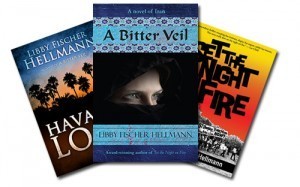 So, in addition to my contemporary thrillers, I’ve written three historical thrillers. A Bitter Veil tells the story of Anna and Nouri, both students in Chicago. When Anna marries wealthy Nouri and moves to his native Iran, their world is turned upside down by the overthrow of the Shah of Iran and the rise of the Islamic Republic. Life becomes more and more restricted, random arrests and torture become the norm, and Anna realizes she isn’t free to leave.
So, in addition to my contemporary thrillers, I’ve written three historical thrillers. A Bitter Veil tells the story of Anna and Nouri, both students in Chicago. When Anna marries wealthy Nouri and moves to his native Iran, their world is turned upside down by the overthrow of the Shah of Iran and the rise of the Islamic Republic. Life becomes more and more restricted, random arrests and torture become the norm, and Anna realizes she isn’t free to leave.
Set The Night On Fire stars a young woman named Lila Hilliard. During the Christmas holidays she returns to her father’s home to find the place on fire, with her father and brother trapped inside. It looks a lot like someone’s trying to kill her. Part thriller, part historical novel, and part love story, the middle part of the novel is set in 1968 Chicago during the riots at the Democratic Convention, and explores six young people (two of whom are Lila’s parents) and how they reacted to the times.
Havana Lost is a three-generational sage that explores the life of mafia princess Francesca Pacelli, who becomes the first female Mafia Chief in the US. When we first meet her during the Cuban revolution, the willful 18 year old flees her ruthless Mafia-boss father to run away with her lover, a rebel who’s fighting with Fidel Castro. Her father uses torture and blackmail to search for her.
The Incidental Spy in September
After Havana Lost, I thought I was done. But I wasn’t. Last year I wrote a novella about WW2. It took me years to drum up the courage to start it–there has already been so much written about the period, and so eloquently, I kept wondering what I could add. Happily, though, a story came to me and I followed where it led. It’ll be out in September, and it’s called The Incidental Spy. Here’s a sneak peek:
Young Lena Bentheim is forced to flee Nazi Germany for Chicago in 1935, leaving her family and boyfriend behind. After learning English, she eventually finds a new life as a secretary in the Physics Department of the University of Chicago. She meets and marries another German refugee scientist and has a child. Then tragedy strikes, and Lena is forced to spy on the nuclear fission experiments at the University of Chicago.
You can find it here in print. It will go on pre-order next week.
What’s next?
And after that? I visited the UK last year after Christmas, and one of the highlights was a trip to Bletchley Park. You can read some of my posts about Bletchley here. It’s an amazing place, and, as you might suspect, I’ve been inspired to write a novella from the British side of WW2 espionage.
What else? I used to imagine myself living during the Middle Ages. I wanted to be a lady-in-waiting for the Queen, or a Duchess, but I had the sneaky suspicion I wouldn’t be in that class. I figured I would be a peasant girl, carrying water from the well to the Master’s home. Strange, the way we see ourselves in history. There’s loads of inspiration in that period. But there are only so many hours in the day, days in a year, years in a lifetime…
The post Why Historicals? appeared first on .
August 2, 2015
Karma, Cuba, and Audio
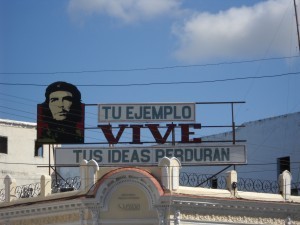 A couple of weeks ago I brought up the concept of karma, in relation to a colleague who helped me a lot in the early stages of my career. Now it’s come up again, this time regarding Cuba, a place close to my heart.
A couple of weeks ago I brought up the concept of karma, in relation to a colleague who helped me a lot in the early stages of my career. Now it’s come up again, this time regarding Cuba, a place close to my heart.
I can’t tell you how thrilled I am that the US is, step by step, re-establishing a diplomatic relationship with Cuba. There’s a lot going on, including John Kerry visiting the country this month. The US now has an Embassy in Cuba, and they have one in DC. A lot of restrictions have been eased, but it’s apt to be a “bumpy ride,” as Bette Davis said, because our two cultures have built up such animosity over the years. But at least it’s begun.
What would speed up rapprochement, of course, is lifting the embargo that’s been in place for nearly 60 years. It never made much sense to begin with, and it’s had a devastating effect on the Cuban economy. In fact the joke Cubans will tell you is this: Fidel has given us a great education, universal heal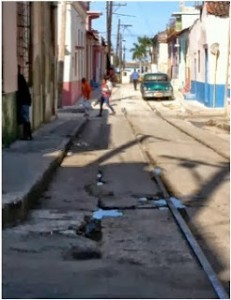 th care, and independence from the goddamn Yankee. There’s only three problems: breakfast, lunch and dinner.
th care, and independence from the goddamn Yankee. There’s only three problems: breakfast, lunch and dinner.
Hillary Clinton insists the Cuba embargo must end, saying “Americans and Cubans alike are looking to move forward. I believe it’s time for Congress to do the same,” and she’s taken her message to Florida where the majority of Cuban exiles (at least those who are still alive) are. There are still hurdles to lifting it in Congress—but, coupled with the other initiatives Obama has launched—this time it has a fighting chance.
In other areas, Cuba and the US are set to resume talks on a direct mail service between two countries. And tourism is already up. As the Sun Sentinel points out:
“In Washington top officials and members of Congress are joining the growing stream of visitors to Cuba, bringing a burst of momentum to attempts on Capitol Hill to lift the ban on pleasure travel to the island. Inspired by seeing Cuba first-hand, members of both political parties are sponsoring and supporting legislation that would widen the flow of visitors and increase trade… Normal diplomatic relations and changes to travel rules have unleashed a pent-up demand to see the mysterious place before it radically transforms.”
There’s more. Americans might soon be able to use credit cards when visiting Cuba, now that the Florida-based Stonegate Bank has agreed to a financial relationship with a bank on the island, the first such agreement between the two countries in 54 years. Once things start moving, they tend to move fast. With luck, Cuba will be able to rejoin the world as a thriving economy before too long. It’s been a long wait.
The US, as the main protagonist in Cuba’s economic decline, is uniquely positioned to help the country’s economy improve, and reconstitute its middle class. However, I fear US corporations might pounce on Cuba, seeking to exploit its resources and people like they did before the Revolution. If that happens, it will be a disaster. We have to help the Cubans, not rape them. And I can’t say I’ll be happy to see the first McDonald’s in Havana. The absence of commercialism in Cuba is one of its charms.
Cuba already scores high on the happiness index
Despite their economic struggles, however, Cubans score high on the Happy Planet Index. Taking 12th place in the list of all 151 countries analyzed, they have a score of 56.2 with a high life expectancy, ‘middling’ levels of experienced well-being, and a moderate ecological footprint. The USA, on the other hand, comes 105th with a score of 37.3. It just goes to show, economic success doesn’t always mean happiness. But then again, nor does poverty. We live in ‘interesting’ times, in the Chinese sense.
The Karma part
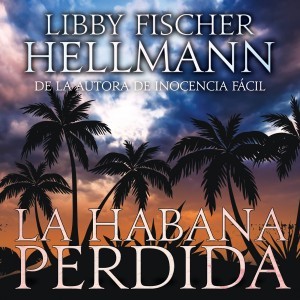 My thriller Havana Lost begins at the end of one diplomatic era and ends on the cusp of another. It just so happens that the Spanish translation audiobook of Havana Lost is now available. Just in time to celebrate. If you’re Spanish, or know someone who is, would you let them know about it, please? It’s available on Audible, Amazon, and iTunes.
My thriller Havana Lost begins at the end of one diplomatic era and ends on the cusp of another. It just so happens that the Spanish translation audiobook of Havana Lost is now available. Just in time to celebrate. If you’re Spanish, or know someone who is, would you let them know about it, please? It’s available on Audible, Amazon, and iTunes.
And if they’d like to review it for FREE, they should contact me through my website.
Thanks.
In the meantime, let’s enjoy watching history unfold.
The post Karma, Cuba, and Audio appeared first on .
July 29, 2015
¡La Habana Perdida — Ahora, El Audio!
 Un thriller en gran parte ambientado en Cuba, que se extiende por tres generaciones de la misma familia. ¡Mas de 200 comentarios in inglés! Ahora disponible en audio.
Un thriller en gran parte ambientado en Cuba, que se extiende por tres generaciones de la misma familia. ¡Mas de 200 comentarios in inglés! Ahora disponible en audio.
En vísperas de la Revolución Cubana, la testaruda Francesca Pacelli, de 18 años de edad, huye de su despiadado padre, un Jefe de la Mafia en La Habana, a los brazos de su amante, un rebelde que lucha con Fidel Castro. Su padre, desesperado por enviarla a la seguridad en los Estados Unidos, recurre a la tortura y al chantaje para buscarla en la isla.
Así comienza la primera parte de una saga fascinante que abarca tres generaciones de la misma familia. Décadas después, la promesa de riquezas incalculables seduce a la familia Pacelli a regresar a Cuba. Pero al
rastrear esas riquezas conlleva tanto peligro como oportunidad, y en última instancia, Francesca debe enfrentar las letales consecuencias de sus decisiones. Desde las conflictivas calles de La Habana a las peligrosas calles de Chicago, LA HABANA PERDIDA revela el verdadero costo de perseguir el poder en lugar del amor.
LA HABANA PERDIDA es la décima novela de la autora galardonada Libby Fischer Hellmann y el tercer thriller que explora cómo la lucha y la revolución afectan el espíritu humano. LA HABANA PERDIDA es un testimonio de la habilidad de Hellmann para retratar los auténticos detalles históricos, así como su talento para escribir novelas de suspenso que llevan a la lectura compulsiva.
El audio está disponible en Audible.com, Amazon, y iTunes.
The post ¡La Habana Perdida — Ahora, El Audio! appeared first on .
July 25, 2015
What I Do Between Books
I love that moment when, like now, I’ve finally finished the first draft of a book, a draft good enough to send to my editor. But what’s next? The act of finishing a book leaves an empty, windy gap where all that daily hard work used to be, and like all vacuums it has to be filled. But what with?
I wish I could say I do all sorts of “writerly” things when I’m between books. But I don’t. It’s partly because at the draft stage a book still isn’t really finished. I’ll get a bunch of revisions from my editor, and will remain in a weird kind of creative limbo until it’s actually published.
It’s also partly because I’m running on empty. I’ve poured out all my energy and creativity into the book, and there’s not a lot left for writerly pursuits or even writerly thoughts. To recharge my batteries, I go for something completely different.
So how to I keep myself off the streets and out of trouble?
— Clean my desk. A tidy desk means a tidy mind, so I clear away all the notes and information and data that I’ve accumulated during the writing process, either tossing it away or stashing it in a file folder. I love how my desk suddenly looks… all clean and uncluttered, ready for the next book.
 — Call my friends and tell them I’m ready to play – I’m like that Bird of Paradise flower that blooms once a year for just a day. Full of renewed energy, with time on my hands for the first time in months, I need to capitalize on that heady feeling of freedom. Look out world, here I come.
— Call my friends and tell them I’m ready to play – I’m like that Bird of Paradise flower that blooms once a year for just a day. Full of renewed energy, with time on my hands for the first time in months, I need to capitalize on that heady feeling of freedom. Look out world, here I come.
— Go listen to live bands, usually on the weekends, and dance up a storm. I’m lucky Chicago has a particularly vibrant music scene. It’s a great way to loosen up, liven up and have a life again, at least for a while.
— Go to a Cubs game, my north side heroes, at Wrigley Field. As a history fan I love that they’ve been going so long. The club played its first game in 1874 as the Chicago White Stockings, only becoming The Cubs in 1903. They’re the second oldest active US sports club and one of just two remaining members of the National League. The crowds, the noise, the beer and the atmosphere give me a boost and I go home refreshed and inspired, ready for anything.
 — Ride my bike to the Botanic Gardens and have lunch with a friend. It’s a special place, 385 acres of lush living museum set on nine islands with twenty six display gardens, all surrounded by four natural habitats. My favorite place is the English Walled Garden, and no trip is complete without a visit in the Japanese garden.
— Ride my bike to the Botanic Gardens and have lunch with a friend. It’s a special place, 385 acres of lush living museum set on nine islands with twenty six display gardens, all surrounded by four natural habitats. My favorite place is the English Walled Garden, and no trip is complete without a visit in the Japanese garden.
— Catch up on movies I’ve missed. And there’s a lot to catch up on after spending months glued to my keyboard as the real world goes on as usual outside.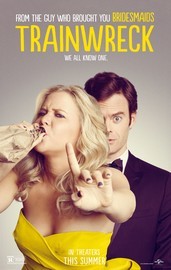
In other words… I actually get a life for a while. It’s great. But unfortunately, by the time you read this, I’ll probably be knee-deep in revisions. My vacation will have ended and there will probably be another book tickling the back of my mind, ready to come out. And so it goes.
If you’re an author, what do you do when you’re not writing?
The post What I Do Between Books appeared first on .
July 19, 2015
The 5 Things I Love About Writing Crime Fiction
Every coin has two sides. Last week I talked about the things I hate most about writing fiction, so this week I’m flipping the coin to look at the aspects of authorship that give me a buzz.
Research – Hunting for facts and context
I love the constant learning, the thrill of the chase, the meticulous search for facts and context. (I’ll write more about that next week). But research also helps me with plotting.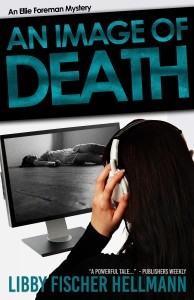 For example, in An Image Of Death, my third Ellie Foreman novel, I needed the backstory for the woman who is killed in the first chapter. For some reason(I’m still not sure why), I decided she was from Armenia and had grown up under a Communist regime. I started to delve into research about Armenia and among other things, discovered a huge earthquake had occurred in 1988. It was so damaging that Soviet troops were sent in to help with the clean-up. But those troops were poorly equipped and many of them became ill. The rescuers needed to be rescued. I placed Arin, the young woman, in a hospital where she volunteered to care for the soldiers. She meets a young officer in the Army, they fall in love, and they both move to a Soviet Army base in Soviet Georgia. That move, coincidentally, was three years before the collapse of the USSR, so I had MORE history to incorporate and drive the plot forward.
For example, in An Image Of Death, my third Ellie Foreman novel, I needed the backstory for the woman who is killed in the first chapter. For some reason(I’m still not sure why), I decided she was from Armenia and had grown up under a Communist regime. I started to delve into research about Armenia and among other things, discovered a huge earthquake had occurred in 1988. It was so damaging that Soviet troops were sent in to help with the clean-up. But those troops were poorly equipped and many of them became ill. The rescuers needed to be rescued. I placed Arin, the young woman, in a hospital where she volunteered to care for the soldiers. She meets a young officer in the Army, they fall in love, and they both move to a Soviet Army base in Soviet Georgia. That move, coincidentally, was three years before the collapse of the USSR, so I had MORE history to incorporate and drive the plot forward.
In another life, I was a journalist. In the early days of writing crime fiction, I often regretted giving it up. But I soon realized there was no need to miss out. The research side of writing fiction has filled the gap, and it’s a great way to for me to keep learning.
Plotting – Twists and Turns
Speaking of plot, I love the complexity of creating a story. Coming up with unique plot twists is even more satisfying. It’s not easy, but, as an editor once told me, if you have created three-dimensional characters, they will tell you what they want to do. I thought she was crazy at the time—I was their creator, and I certainly wasn’t channelling Shirley MacLaine. But I concluded that editor was right. I just needed to step back and stop manipulating them into boxes they didn’t want to enter, for the sole reason that I thought they should. It was at that point that I stopped outlining and began to let the plot evolve organically. That doesn’t mean I don’t confront them with obstacles or Hobsian choices. Or pave the way for a surprise twist. I do, and I think those elements are critical to plot, and I enjoy putting the pieces of the puzzle together. The only hard part is writing them.
Diving into different subgenres
Subgenres. They’re a personal challenge for me, but in a good way. Stepping out of my comfort zone wakes me up, keeps me fresh and comes with all sorts of enjoyable knotty complications. I often say I’m “writing my way around the genre,” and with my collection of suspense novels, PI novels, historical thrillers, amateur sleuth novels, and even a cozy, I suppose that’s true. The crime fiction canvas is broader than simply a “whodunit,” and I’m continually surprised, fascinated, and challenged by the permutations other authors have brought to the genre. I’ve written dark, I’ve written light, I’ve written despair, I’ve written hope. In fact, the mental and emotional roads I travel while writing a crime novel provide me with a rich palette, which makes it an exciting journey.
Editing – The pleasure of perfection
Even though it’s the hardest part of writing for me, I believe in Annie LaMott’s Shitty First Drafts. You would not believe how awful my first drafts really are. Phrases, unfinished sentences, no punctuation, incomplete thoughts. I used to call it “Writing Ugly.” Happily though, editing is one of my favorite parts of the process. After finishing a chapter, I’ll go back and revise, expand, and finesse it until it’s smooth enough to read to my Writers’ Group. They will invariably have comments and suggestions, which I listen to carefully. Once the entire novel is done, I send it to a developmental editor. Hopefully, the hardest work will have been done: plot, context, characters and motivations, the suspense and the settings. But if one or more of those elements are missing or unclear, a good developmental editor will find them. In fact, I believe every author deserves a developmental editor. They really are trying to make it a better book. When the edits come back, I take great pleasure in clarifying, polishing, cutting, embellishing and re-ordering. The truth is if I didn’t have a deadline, I would probably still be editing my first novel.
Book covers – Reality at last
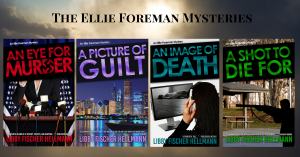 Bright, shiny, new book covers like these are another favorite part of the process. It’s like getting a birthday present — it makes a book real. It’s no longer just a collection of manuscript pages, it’s whole and full of personality, attitude, and color. When the design mirrors the mood and content of the book, it’s a job well done, and it means my job is finished… until I start the next book.
Bright, shiny, new book covers like these are another favorite part of the process. It’s like getting a birthday present — it makes a book real. It’s no longer just a collection of manuscript pages, it’s whole and full of personality, attitude, and color. When the design mirrors the mood and content of the book, it’s a job well done, and it means my job is finished… until I start the next book.
So… I hate five things about writing thrillers and love five more. Somewhere along the road, though, I must have decided the good outweighs the bad, or I’d have given my writing career up years ago. I would have done something else, like become a lawyer (which I seriously thought about until I got my law board scores back), a film director, or a teacher.
What do you love most about your job?
Whether or not you’re an author, it’d be fun to know what you love most about your job. Why not leave a comment?
The post The 5 Things I Love About Writing Crime Fiction appeared first on .
July 15, 2015
The 5 Things I Hate About Writing Crime Fiction
 Imagine a writer, okay – me — sitting with my feet up, happily tapping on my keyboard, writing 1500 words a day. Nice idea, right? But that’s all it is. An idea. The reality is I am usually sweating it out, getting up from the keyboard, cursing, and maybe—if it’s a good day— sitting back down to try to squeeze out a few hundred words.
Imagine a writer, okay – me — sitting with my feet up, happily tapping on my keyboard, writing 1500 words a day. Nice idea, right? But that’s all it is. An idea. The reality is I am usually sweating it out, getting up from the keyboard, cursing, and maybe—if it’s a good day— sitting back down to try to squeeze out a few hundred words.
Writing crime fiction is the most difficult thing I’ve ever done. I’m sure being an airline pilot or Polar explorer would have been easier. Writing wrings it out of me. And then, like a true masochist, I go back for more. But some parts of writing are worse than others. Here are the five things I hate most about writing crime fiction.
Shitty first drafts
I hate writing first drafts. Coming down to a blank computer screen in the morning fills me with terror — I always feel unequal to the task. I used to try and trick myself by writing down phrases, adjectives, or whatever else came to mind on tiny slips of paper during non-writing time. Having a bunch of those to start my writing day made me feel more prepared. After a while, though, I stopped doing that. Now, the only solace for that shitty first draft, popularized by Anne Lamott in her wonderful book on writing Bird by Bird is this:
“All good writers write them. This is how they end up with good second drafts and terrific third drafts. People tend to look at successful writers who are getting their books published and maybe even doing well financially and think that they sit down at their desks every morning feeling like a million dollars, feeling great about who they are and how much talent they have and what a great story they have to tell; that they take in a few deep breaths, push back their sleeves, roll their necks a few times to get all the cricks out, and dive in, typing fully formed passages as fast as a court reporter. But this is just the fantasy of the uninitiated.”
I can guarantee that most of my drafts are… well, shitty. And even though I know it’s part of being an author, it still drives me nuts. I’d love to turn out perfect prose, one sentence after another without breaking a sweat. Nope. Not gonna happen. On my better days, I take Annie Lamott’s advice to heart and try to embrace my shitty first draft. On other days, well you might say I live in the sewer.
Unusual murder methods
It’s so tempting to spice things up. Unusual methods of murder, like exotic poisons, or icicles that melt leaving no evidence, are always in vogue. However, my approach is different: it doesn’t really matter how the death occurred. I typically just shoot or stab my victims. Once in a while I use poison. The rest of it is, to me at least, a fundamental misunderstanding of what a crime novel is. The most important things are the characters and their motivations for killing someone. Plus a plot that isn’t derivative. And a three-dimensional, interesting protagonist. The rest of it is just window-dressing.
Factual or Procedural mistakes
I also hate making mistakes, either in police procedure or handling a gun or even historical research. No matter how much research I do, interviews I conduct, or articles I read, there is bound to be something that slips through the cracks and ends up in print. And you can bet someone out there is just waiting to let the world know I got it wrong.
Writing myself into a corner
I write backstories to flesh out my characters. But I don’t outline a plot, so occasionally I’ll be writing a character or situation that forces them into a box that they can’t get out of. It’s almost like they have a life of their own sometimes, and for some reason I haven’t listened to them and made them do something, that if left to their own devices, they would never do. It takes me forever to figure out where things went wrong and then revise so my characters are behaving in an authentic and credible way.
Nasty reviews
You’d have to be made of steel not to wilt when you read a bad review. It doesn’t matter if thousands of people loved your book, the one who didn’t – and they’re usually vocal about it – is the one I remember.
Like shitty first drafts, it’s something I’m doing trying get used to, and my skin is getting thicker every time I publish a new book. On the other hand, recent news reports revealing how at least 25% of online reviews are made up, or written by sock puppets, makes it easier to ignore the occasional nasty one and emerge relatively unscathed.
What do you hate about your job?
If you’re a writer I’d love to know what you hate most about writing. If not, it’d be interesting to know what drives you most nuts about your job. Leave a comment.
The post The 5 Things I Hate About Writing Crime Fiction appeared first on .
July 7, 2015
A New Look… Same Mystery/Suspense
I decided it was time to update the Ellie Foreman series (especially since the 5th Ellie mystery, JUMP CUT, will be released next March), so here’s what I came up with. Yes, there’s a new cover for each novel, but it’s the same award-winning mystery and suspense you expect from the Chicago video producer and single mother.
If you haven’t read an Ellie Foreman mystery, I hope you’ll take advantage of this special sale on the Boxed Set — just $6.99– down from $9.99– for all FOUR novels. Only for the next week. It’s a steal.
And now… (drum roll, please)… here’s the new look. Let me know what you think. And feel free to stop by to pick up that great sale price.
The post A New Look… Same Mystery/Suspense appeared first on .
June 24, 2015
Taylor Swift and Apple – Will the Publishing Worm Turn Too?
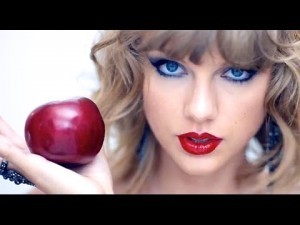 I’ve talked a lot about the opportunities online publishing brings, especially to writers who found it tough getting published before the internet changed our world. I’ve also talked about author royalties and the way they’re shrinking fast.
I’ve talked a lot about the opportunities online publishing brings, especially to writers who found it tough getting published before the internet changed our world. I’ve also talked about author royalties and the way they’re shrinking fast.
Now Taylor Swift, a well-respected artist with millions of teenage fans, has said “Uh—I don’t think so,” and her message just might kick-start a change in the way artists of all kinds are treated by publishing, distribution and retail giants.
Would you work free for three months?
Six months ago Taylor Swift slammed Spotify. Then, just a few months ago the word was that Apple was about to buy Taylor Swift’s label, Big Machine. But the artist just dealt an embarrassing blow to Apple, who created a new music subscription program called Apple Music and wanted to give its customers a free three-month ‘trial’ of the new service. During this trial, Apple announced, musicians would not receive royalties on their music.
Taylor Swift’s response? “Um. No. Not this chick.”
In her words: “I’m not sure you know that Apple Music will not be paying writers, producers, or artists for those three months. I find it to be shocking, disappointing, and completely unlike this historically progressive and generous company. Three months is a long time to go unpaid, and it is unfair to ask anyone to work for nothing.”
Swift’s message to Apple was polite yet firm, but the underlying message was clear: You are a greedy behemoth, and you are out of touch with the artists whose work you take advantage of, and I’m not going to give you permission to use my music unless you pay. It’s another blow for Apple, who is still trying to recover from their Justice Department anti-trust suit. At one point, they were considered of the planet’s most popular corporations, but being labelled stingy by a star as shiny as Swift, coupled with their push-back against DOJ, has tarnished their reputation.
Apple will pay its artists a fair royalty
The good news is that Apple conceded almost immediately. Thanks to Swift, they agreed to actually pay artists and songwriters for its three-month free trial, and pay them a decent amount, not peanuts. It’s great news for Swift but will hopefully be even better news for less-famous artists who are facing financial difficulties thanks to the ever-growing trend of giving away music.
How did it go so spectacularly wrong?
One theory says the Apple executive in charge, long-time music executive Jimmy Iovine has principles that clash head on with the late, great Steve Jobs. Apparently Iovine was responsible for axing the royalties during Apple Music’s free trial, by introducing to record companies the concept of “music for the entire family” rather than individuals. Apple Music’s service, he claimed, would far surpass Spotify, Pandora, and all the others. The ding of royalties for three months would be more than compensated down the road, he claimed..
To be fair, Taylor Swift wasn’t the first to criticize the Apple policy. She was just the most well known. A handful of small, independent music labels stood firm against Iovine’s contract, and many feel their actions galvanised Swift to act. But whatever the impetus, the news has, once again, opened up a raw wound.
Should artists be paid for their work?
Apply logic and the answer has to be yes. Say you drive a taxi. Would you drive it for three months without charging your customers? Of course not. Or you’re a teacher. Would you teach high school for nothing? No way. Now, imagine you’re a writer.
Authors need a Taylor Swift of Our Own
We’re being squeezed harder than ever by Big Publishing. Advances are down, royalties are too, contracts are more stringent, and there’s very little flexibility unless you’re a best-selling author. The Authors’ Guild says it’s taking on the issue of intransigent contracts, and maybe they will. But when Amazon launched its own subscription service last year, the result was a significant downward pressure on author royalties. Amazon just announced its own plan to rectify the situation. Time will tell if it works.
In the meantime, though, we need our own Taylor Swift: a successful high-profile author on our side to take on Big Publishing and keep Amazon honest. Yes, Joe Konrath has been telling it like it is for years, but I think he’s tired. It’s time for someone new. 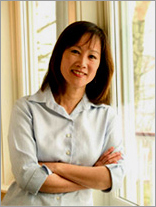 Tess Gerritsen has been pretty vocal about the way she was shafted by Hollywood regarding her novel Gravity both here and here. Hers was a contractual dispute, not about royalties, but I’m glad she’s airing the not-so-nice side of movie-making.
Tess Gerritsen has been pretty vocal about the way she was shafted by Hollywood regarding her novel Gravity both here and here. Hers was a contractual dispute, not about royalties, but I’m glad she’s airing the not-so-nice side of movie-making.
But here’s a fantastical thought. How about if someone like Stephen King, an international best seller for decades, refused to let sign a new contract unless royalties for all authors (particularly on ebooks) were at least 50%? Or what if he withdrew his entire back catalogue from Amazon unless there was a guaranteed royalty for a KU or KOLL sale? Would anyone listen?
There’s already talk about a ‘Swiftian’ future for authors. The excellent publishing blog Futurebook asks:
“Could a little bit of Swiftian kick-back help the book business too? It is worth contrasting Apple’s manoeuvre with the changes Amazon made to how it will pay indie writers signed up to its all-you-can-read Kindle Unlimited (KU) and the Kindle Owners Lending Library (KOLL).
But as the blog also says:
“A more pertinent question book publishers should be asking, is not what could Taylor Swift do for them, but how the music business got into a position where it had to rely on a single artist to run its negotiations for them.”
Hmmm. What do you think?
The post Taylor Swift and Apple – Will the Publishing Worm Turn Too? appeared first on .
June 23, 2015
Karma Is A Strange Thing
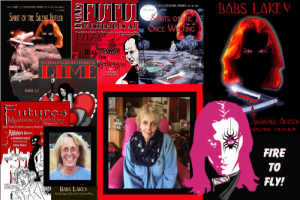 As you will note, my most recent post was about giving away some short stories to celebrate my birthday. (It’s today, actually, and thanks to everyone who left a FB greeting – you rock!) Anyway, those of you who know me understand how much I love short stories and how helpful they are for an author’s career.
As you will note, my most recent post was about giving away some short stories to celebrate my birthday. (It’s today, actually, and thanks to everyone who left a FB greeting – you rock!) Anyway, those of you who know me understand how much I love short stories and how helpful they are for an author’s career.
One of the people who gave me my start in publishing short stories was Babs Lakey. She created and ran a wonderful fiction magazine called FUTURES, for about ten years. It wasn’t a high circulation endeavor, but it was all fiction, and she was known to give writers like me, a newbie at the time, a chance to submit stories. Several of my short stories were either published or republished in FUTURES. But that was only part of Babs’ work. She was—and is—a tireless cheerleader for fiction writers. She was active in the Short Mystery Fiction Society, and I remember whenever I was feeling down and depressed, she was unfailingly supportive and encouraging. I will never forget her cheerfulness and enthusiasm.
Well, life’s a bitch and FUTURES eventually folded, after the magazine drained most of her savings. I lost touch with Babs after that—until quite recently. The news came that Babs is not well. Babs was diagnosed with a string of disabling ailments including Syringomyelia, the rare spinal column cyst that painfully affects any and all of the body’s nerve endings and Sjögren’s Syndrome, which dries all saliva and makes throat, mouth, teeth, eyes, skin etc., a nightmare, and brain lesions. She also suffers from MS and Kidney Disease, as well as serious bladder & bowel problems.
Plus she’s in need of permanent housing, because the place where she lives is going condo. Bottom line: she needs financial help. A Go-Fund-Me program was set up for her. It’s doing okay, but it could use a shot in the arm.
So I’m shamelessly asking any of you who knew Babs and remember Futures to consider a donation to the Fund. Even if you don’t know Babs but want to support someone who supported writers so tirelessly over the years, it would be wonderful if you could see your way toward a contribution.
It would mean the world to her… and those of us who know her and appreciate what she did for our careers would thank you from the bottom of our hearts.
Click here to go to the campaign.
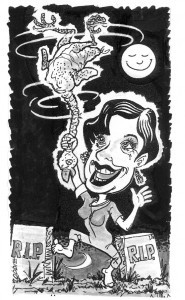 You’ll find much more about Babs and the people who worked with her, including James Oddie, a cartoonist in the vein of Robert Crumb and Zap Comix. We called him Toon-Man. Here’s one he did of me. Yes, I’m swinging a chicken around in the air — it’s a long story. And I still wear dangly earrings. Btw, Toon-Man is willing to donate an anthology of his work to anyone who contributes $100 or more to Babs’ campaign. She deserves so much more than she’s getting.
You’ll find much more about Babs and the people who worked with her, including James Oddie, a cartoonist in the vein of Robert Crumb and Zap Comix. We called him Toon-Man. Here’s one he did of me. Yes, I’m swinging a chicken around in the air — it’s a long story. And I still wear dangly earrings. Btw, Toon-Man is willing to donate an anthology of his work to anyone who contributes $100 or more to Babs’ campaign. She deserves so much more than she’s getting.
Thanks for reading this far. I hope you’ll check out the link.
The post Karma Is A Strange Thing appeared first on .

